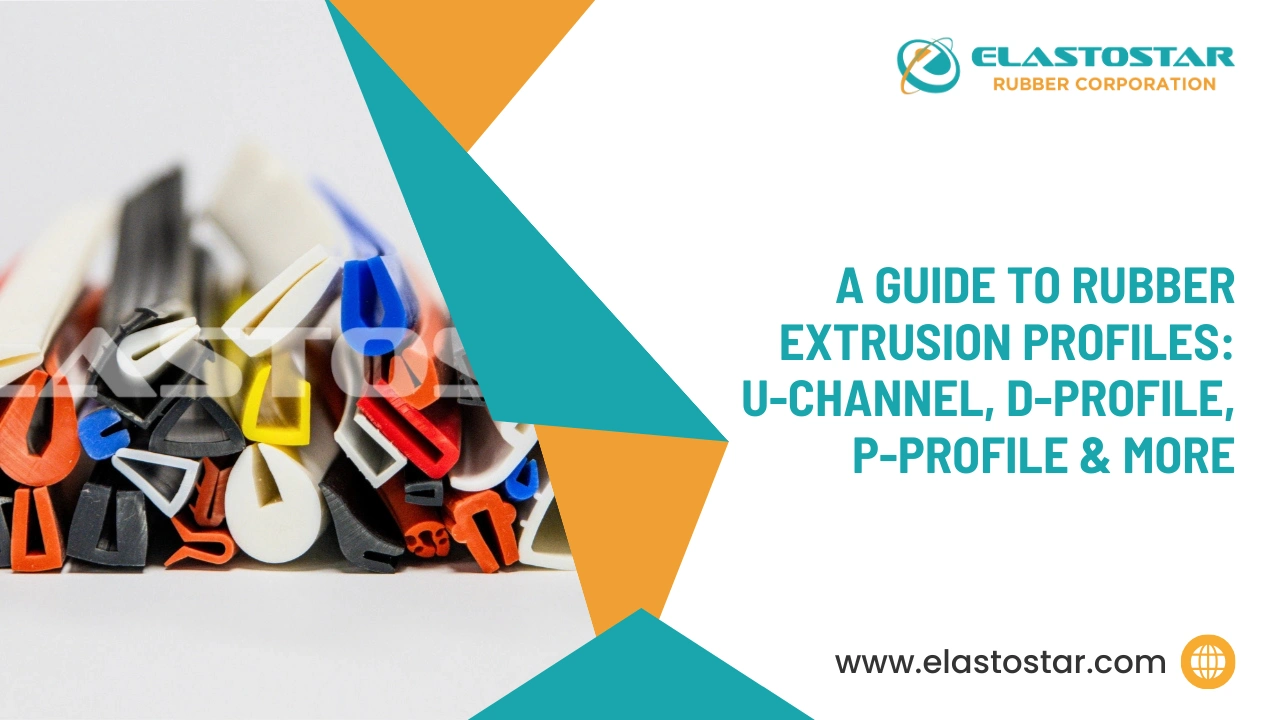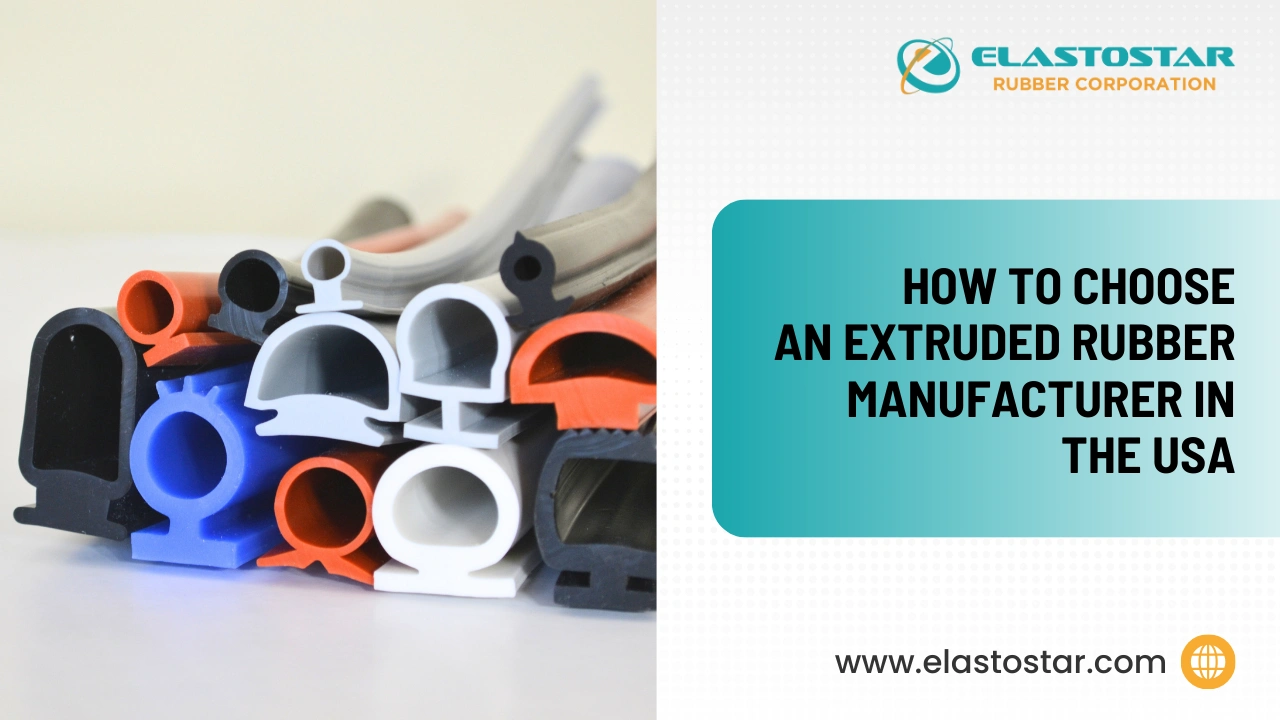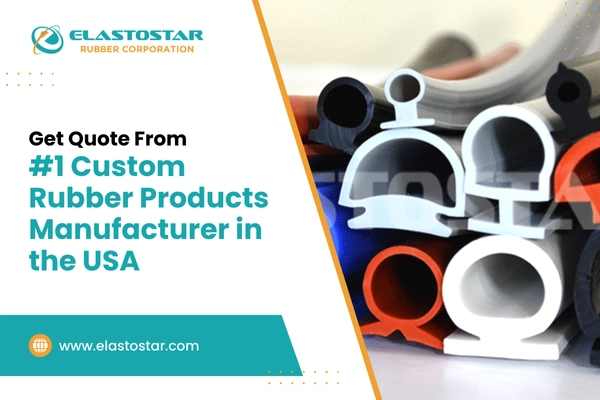The demand for high-quality, food-grade silicone rubber is on a significant rise, with the global market expected to grow by 5.2% annually through 2025. This surge is fueled by increasingly stringent food safety regulations and a heightened focus on maintaining pristine manufacturing environments. At the heart of this growth is FDA-approved silicone rubber, which is particularly valued in the food industry for producing gaskets and seals. But why is this material so crucial, and what does “FDA-approved” entail?
Table of Contents
What Is FDA-Approved Silicone Rubber?

FDA-approved silicone rubber is a specialized material formulated to meet strict safety standards for food contact. It is non-toxic, non-reactive, and designed to maintain its integrity under high and low temperatures, making it ideal for food processing.
To be considered FDA 21 CFR 177.2600 compliant seals, the rubber must pass rigorous testing that proves it will not leach harmful substances into food, even after repeated use. This regulation outlines acceptable ingredients, processing methods, and performance benchmarks—ensuring the rubber is truly “food-safe” for daily, direct contact in manufacturing and packaging applications.
Why Silicone Rubber excels in Food Processing?
Food processing environments are demanding, often involving extreme temperatures, constant cleaning, and direct contact with sensitive products. That’s where silicone FDA-approved materials truly shine. With excellent temperature resistance—ranging from deep freezing to high-heat sterilization—silicone maintains its flexibility and sealing power.
As an FDA-compliant silicone, it is chemically, meaning it won’t react with food, absorb flavors, or release unwanted odors. This makes it ideal for maintaining hygiene and product purity. Its durability in harsh conditions also makes it a preferred material for custom die-cut gaskets customised to fit complex food equipment designs.
What is The Significance of FDA-approved silicone Rubber?

When a material earns FDA approval, it has passed rigorous U.S. Food and Drug Administration evaluations. This approval is crucial because it confirms the material’s safety for direct contact with food. FDA-approved materials, such as silicone rubber strips and seals, must not release harmful substances into food at service temperatures, ensuring consumer safety and product integrity.
The Benefits of FDA-Approved Silicone Rubber in Food Processing
FDA-approved silicone rubber stands out in the food processing equipments industry due to its exceptional qualities:
- Unmatched Hygiene
The non-porous nature of silicone rubber makes it resistant to bacterial growth, simplifying cleaning and sanitation processes. This is crucial in industries where hygiene is paramount, such as food and beverage manufacturing. Cleanability ensures compliance with health regulations and upholds the high standards of food quality and safety.
- Thermal Stability and Chemical Resistance
Silicone rubber’s ability to handle a wide range of temperatures and its chemical properties mean it does not react with foods or beverages.
This stability is essential in processes that involve extreme temperatures, such as freezing, making silicone gaskets and seals reliable for preserving the taste and purity of food products.
- Durability and Cost-Effectiveness
Beyond its technical advantages, silicone rubber is also economically beneficial. It is durable and requires fewer replacements and maintenance, thereby reducing long-term costs. Furthermore, FDA-approved O-rings and gaskets maintain their integrity over time. Thus, it resists wear and tear even under rigorous use, vital for continuous production environments.
What are the Common Applications in the Food Industry?

Silicone rubber is widely used in the food and beverage industry because it meets strict hygiene, safety, and performance standards. Its flexibility, temperature resistance, and non-reactivity make it ideal for various sealing and fluid transfer applications.
Silicone Rubber Gaskets
- Commonly used in sanitary fittings, food mixers, and processing tanks
- Provides a reliable, leak-proof seal under high temperatures and frequent cleaning
- Help maintain hygienic conditions and prevent contamination
Silicone Tubes
- Used for transporting liquids in beverage, food and dairy production lines
- Remain flexible, non-reactive, and stable under heat and pressure
- Supports consistent product flow without affecting taste or purity
FDA O-Rings
- Suitable for pumps, valves, and mechanical components that require dynamic sealing
- Withstand pressure, movement, and sterilization cycles
- Manufactured to comply with FDA requirements for direct food contact
Custom Rubber Seals
- Designed to meet specific equipment dimensions and functional needs
- Applied in ovens, packaging equipment, bottling lines, and filling systems
- Available in a variety of FDA-compliant silicone formulations and profiles
Silicone-based components are preferred across the food industry due to their performance, safety, and adaptability in critical applications.
Silicone vs Other Food-Grade Materials
Choosing the right gasket material for food processing applications is critical for ensuring safety, durability, and compliance.
While several options are available, silicone rubber gaskets often excel due to their performance in demanding environments.
Below is a comparison of the most commonly used FDA-compliant gaskets in the food industry:
| Property | Silicone | EPDM | PTFE | Nitrile (NBR) |
| Temperature Range | -60°C to +230°C | -40°C to +150°C | -200°C to +260°C | -30°C to +120°C |
| Flexibility | Excellent | Good | Poor (rigid) | Fair |
| Chemical Resistance | Excellent | Good | Excellent | Moderate |
| FDA Compliance | Yes | Yes | Yes | Limited |
| Cost | Moderate | Low | High | Low |
| Taste/Odor Neutrality | Yes | Fair | Yes | No |
- Silicone is ideal for applications involving wide temperature fluctuations, repeated cleaning, or sensitive food products.
- EPDM is a cost-effective option for less demanding environments.
- PTFE offers excellent resistance but lacks flexibility.
- Nitrile is suitable for oily foods but has limited high-temperature resistance.
Silicone is often preferred when long-term reliability, hygiene, and broad performance capabilities are required.
Addressing Common Seal Failures & Maintenance Tips
Gaskets and seals are exposed to constant stress in food processing environments—temperature fluctuations, aggressive cleaning agents, pressure changes, and direct food contact. Over time, these conditions can cause degradation, leading to leaks, contamination risks, or equipment downtime.
Common Causes of Gasket Failure:
- Repeated exposure to high temperatures or steam
- Chemical breakdown from sanitizing agents
- Compression set or loss of elasticity over time
- Incorrect installation or poor material compatibility
Preventive Maintenance Tips:
- Inspect seals regularly for cracks, deformation, or wear
- Replace seals during scheduled maintenance to avoid unexpected failures
- Ensure correct fitment and material selection for specific applications
- Use gasket sheets for the food market that meet FDA standards and application-specific needs
Silicone offers a key advantage: its ability to maintain elasticity and performance over time. With high resistance to temperature extremes and cleaning chemicals, custom rubber seals made from FDA-approved silicone can significantly reduce replacement frequency, saving time and operational costs.
Latest Innovations in Food-Grade Silicone Rubber

As the food industry evolves, so do the materials used to support safer, cleaner, and more efficient operations. Today, several innovative types of FDA-approved food-grade silicone are designed to improve safety and traceability in food processing environments.
Antimicrobial Silicone
This silicone contains additives that help prevent the growth of bacteria on gasket and seal surfaces. It is especially useful in areas where hygiene is critical and regular cleaning may not be enough.
Metal-Detectable Silicone
Small metal particles are added to the silicone, making it visible to metal detectors and X-ray machines. This helps quickly identify broken seal fragments in food production lines, reducing contamination risks.
Colored Silicone for Traceability
Silicone rubber extrusion manufacturers now offer brightly colored silicone options. These help improve visibility during inspections and make it easier to identify different parts or batches in the production process.
These innovations offer added protection and convenience, making silicone an even more valuable material for food-grade sealing applications.
FDA, USDA, and 3A Compliance Standards Explained
Safety and regulatory compliance are essential in the food and beverage industry. Materials used in processing equipment must meet strict standards to ensure they do not contaminate food or compromise hygiene.
FDA Compliance
The U.S. Food and Drug Administration (FDA) sets clear regulations under CFR 21 for materials in contact with food. FDA-compliant seals must be made from safe, non-toxic, and stable ingredients under conditions of use. They must also resist heat, pressure, and cleaning chemicals without breaking down.
USDA & 3A Sanitary Standards
The USDA monitors materials used in meat and poultry processing facilities, while 3A Sanitary Standards focus on dairy equipment. Both agencies require components to be easy to clean and made from materials that prevent bacterial buildup.
Elastostar’s Commitment to Compliance
At Elastostar, we manufacture FDA-approved seals that meet or exceed all relevant guidelines. Our materials are carefully selected and tested to ensure full compliance with FDA, USDA, and 3A standards. We also provide documentation and traceability for every product we produce, giving our customers confidence in performance and safety.
Why Choose Elastostar for Food-Grade Silicone Rubber?
Elastostar is a trusted custom rubber product manufacturer known for producing high-quality, FDA-compliant silicone components customised to the needs of the food and beverage industry. We support customers from concept to complete precision, compliance, and performance in every part.
As experts in custom extruded rubber, we offer:
- FDA, USDA, and 3A-compliant materials with full traceability
- Reverse engineering, design consultation, and prototyping
- Shortest lead time delivery from prototype to production run
- Custom profiles, gaskets, seals, and silicone tubing made to exact specs
- Rigorous quality control and in-house testing
Whether you’re replacing legacy components or developing new equipment, Elastostar delivers dependable silicone rubber solutions backed by expert support.
Need Reliable Silicone Rubber Solutions?
Partner with a team that understands your industry’s standards and urgency. From rapid prototyping to full-scale production, Elastostar ensures your components are ready to perform.
Contact us today for FDA-grade silicone rubber gaskets and seals.
Recommended Reads
- What Is Manway Gasket? A Comprehensive Guide
- Difference Between Silicone Sponge Rubber And Foam Rubber
- Difference Between Closed Cell Silicone Sponge Vs. Dense Silicone Rubber

Conclusion
The reliance on FDA-approved silicone rubber in the food industry is more than a compliance checkbox. It’s crucial in the quest for safety, efficiency, and quality. As the industry continues to grow and evolve, the role of certified, safe, and effective materials like silicone will only become more central, ensuring that food safety is never compromised.
At Elastostar, we understand the importance of safety and efficiency in the food industry. Our extensive range of FDA-grade silicone products, including durable silicone tubing, custom-molded components, and reinforced silicone hoses, is designed to meet and exceed the rigorous standards required for food contact applications.
Whether looking for silicone gaskets that resist wear under extreme temperatures or FDA-compliant silicone sheeting that maintains its integrity over time, Elastostar provides customizable solutions tailored to your needs.
FAQs
1. What makes FDA-approved silicone rubber suitable for use in the food industry?
At Elastostar, our FDA-approved silicone rubber meets stringent safety and quality standards. It is non-toxic, odorless, and resistant to high temperatures, making it ideal for food-contact applications.
2. How does silicone rubber maintain its integrity in food processing environments?
Our silicone rubber is highly durable and can withstand extreme hot and cold temperatures without degrading. It also resists chemical reactions with food products, ensuring long-lasting performance in various food-processing conditions.
3. What are the key benefits of using silicone rubber gaskets and seals in food processing equipment?
The key benefits include excellent temperature resistance, flexibility, non-toxicity, and compliance with FDA regulations, which help maintain food safety and equipment reliability. Elastostar’s extruded rubber products are designed to meet the specific needs of the food industry.
4. Are there specific regulations that FDA-approved silicone rubber must meet for food industry use?
Yes, our FDA-approved silicone rubber complies with FDA 21 CFR 177.2600, which specifies the criteria for materials intended for repeated use in contact with food. This ensures that our products are safe and effective for food processing.
5. How does using FDA-approved silicone rubber impact food products’ overall safety and quality?
Elastostar’s FDA-approved silicone rubber helps prevent contamination and ensures that seals and gaskets do not impart harmful substances to the food. This commitment to quality helps maintain the safety and quality of food products, aligning with industry standards and consumer expectations.
Is silicone rubber FDA-compliant?
Yes, many types of silicone rubber are FDA-compliant. This means they are safe to use with food if they meet FDA standards (like FDA 21 CFR 177.2600).
Can silicone withstand food processing temperatures?
Yes, silicone can handle very high and low temperatures. It usually works well from -60°C to 230°C (-76°F to 446°F), which makes it great for food processing.
What gasket material is best for dairy and meat processing?
EPDM, PTFE, and FDA-grade silicone are commonly used for dairy and meat processing. These materials resist cleaning chemicals and high temperatures and meet hygiene standards. For food safety, always choose an FDA and 3-A Sanitary certified gasket.





